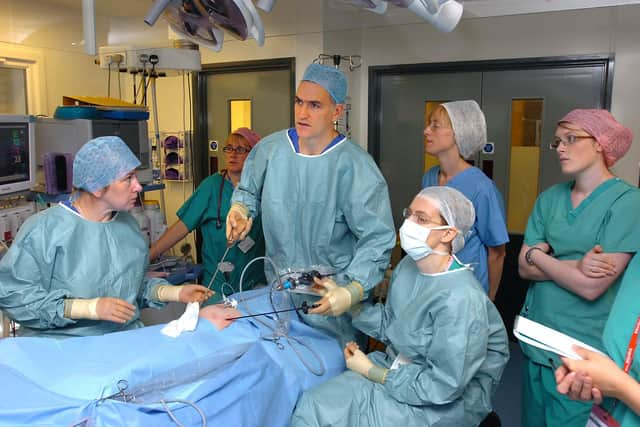Senior Doncaster NHS figure warns of 'challenges' in borough over non essential operations post lockdown
and live on Freeview channel 276
The June governors meeting of the Doncaster NHS Clinical Commissioning Group heard there were ‘green shoots of recovery’ – but patients would still face long waits for some time.
Director of strategy and delivery at the organisation, Anthony Fitzgerald, told the meeting: “There are some green shoots of recovery in waiting times.
Advertisement
Hide AdAdvertisement
Hide Ad"In terms of the percentage of people waiting less than 18 weeks for their elective care this is the highest performance we've had since June last year, and we’re seeing some reduction in the number of patients waiting over 52 weeks for treatment although that is still quite significant


"This is reflective of the acute trust’s (Doncaster And Bassetlaw Teaching hospital) elective speciality coming back and on board in terms of full capacity, and members should also be aware that the trust is part of South Yorkshire and Bassetlaw’s approach to acceleration and recovery.
“That’s part of a national programme and this will include additional funding to achieve that.”
He said Doncaster would also see a programme to change the way it deals with outpatients over the next few months.
Advertisement
Hide AdAdvertisement
Hide AdHe said the number of people waiting less than four hours in A&E in April was 83 per cent – generally in line with England averages.
CCG chairman Dr David Crichton a Bentley GP, said there was a reduction in the number of people waiting 52 weeks, but was concerned over the number of patients who had been waiting between 40 and 50 weeks.
He said: “As that flows through its going to cause us some challenges in the next few months.
“I think its been acknowledged by the acute trust, but it's not a linear recovery path because it looks like the number of people who are at the longer end of their wait are going to creep over 52 weeks.
Advertisement
Hide AdAdvertisement
Hide Ad"We’ve raised it with the acute trust. They’re aware of it, and I think we can’t be complacent. There are going to be people waiting quite a duration for treatment.”